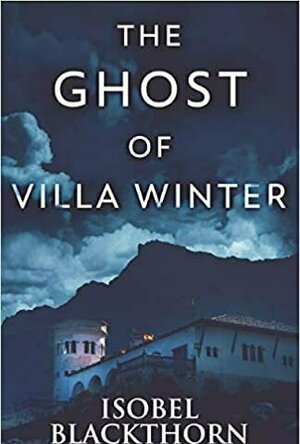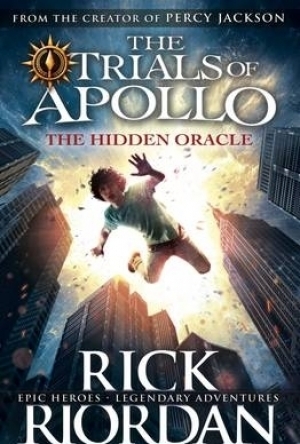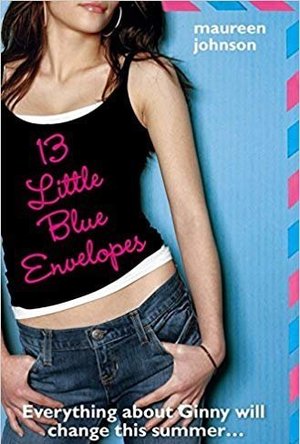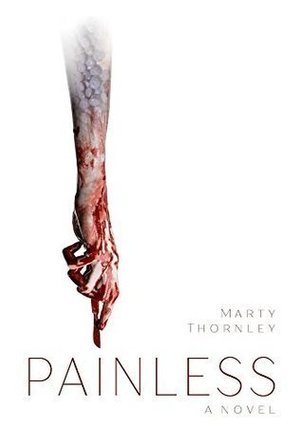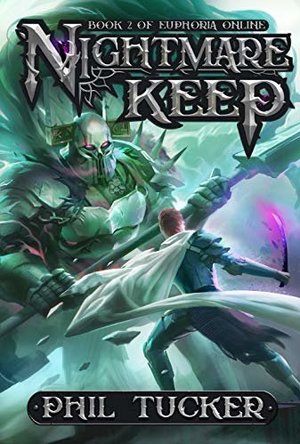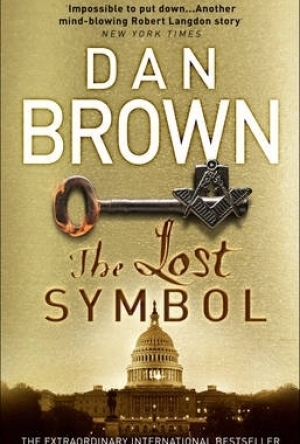Search
Search results
Hadley (567 KP) rated The Ghost of Villa Winter in Books
Mar 12, 2021
A cult (1 more)
Description of environment
All of the characters (1 more)
Amateur writing mistakes
Little does the reader know when they pick up a copy of The Ghost of Villa Winter by Isobel Blackthorn that a cult is lurking about inside the pages.
We begin our journey with Clarissa ,our main character, boarding a tour bus where she lets her personality shine through, which turns out to be extremely judgmental of anyone who isn't like her, or doesn't fit into the categories she places them in. For example, the driver of the tour bus is automatically labeled by Clarissa as a bad man because he has an uneven face and a French accent, and much of the same is said about the other seven passengers, as well. When she finally manages to stop judging the passengers, readers find out that Clarissa is somewhat of a psychic: "Ghosts spoke a language of their own and if a member of the spirit world inhabited the abandoned abode, she was sure to pick up on it. She was never wrong in these matters. Only three of the thirty or more premises she'd investigated on so-called ghost tours had contained a legitimate ghost. She prided herself on her mediumistic prowess. She was apt to pick up on preternatural inhabitants of places said not to be haunted. Sometimes she thought she could singlehandedly re-write history based on information she had gleaned, but that was being arrogant. She followed her dreams and her visions and her intuition, that was all. A natural psychic and a cynic to boot. "
It turns out that Clarissa is on the tour to see if she can encounter any spirits that may be at the infamous Villa Winter; a place that is believed to have been a secret Nazi base, as well as a place for human experiments - - - the tower was also believed to have been used as a lighthouse for German U-boats - - - which, in reality, Villa Winter is an actual place that exists on the Canary Islands in Spain.
The Ghost of Villa Winter is the fourth book in Blackthorn's Canary Islands Mysteries series, but it can be easily read as an introduction to it because you don't need any background information to understand what is going on. The novel takes on the usual tropes of a murder-mystery plot (a body is found, people are stranded and trying to figure out who among them is the murderer). Agatha Christie is one of the best authors of the murder-mystery genre who loved using her knowledge of poisons in her stories - - - Blackthorn treats the tropes with the right amount of respect which makes The Ghost of Villa Winter a pretty good story.
My major complaint for the Ghost of Villa Winter are the characters, which I found every single one quite unlikable, and even by the end, I couldn't bring myself to care at all for Clarissa. The way that she judged everyone so harshly, and her viewpoint that if no one acted the way she wanted them to, she would believe something was wrong with them that needed to be addressed in a rude manner: "He was the most anxious man she had come across in a long time. Anxious, unsure of himself and preoccupied. Far too self-conscious. The way he'd aligned his plate at lunch. That was obsessive-compulsive. And he certainly couldn't handle Fred Spice. She was sure he could be charming with pretty young ladies, patronizing even, but around her he was awkward. It was clear, too, that he was broken. It wouldn't be easy being an author knowing as you aged that all of your success was behind you and your future held nothing but diminishment. Writing was one of those activities you could pursue until you dropped and many successful authors did just that. As irritating as he could be, she felt sorry for him. "
The other characters are all seen from Clarissa's viewpoint, so they come off quite annoying, but at one point it seemed like Blackthorn was trying to redeem Clarissa's negative qualities by making her an advocate for a possibly wrongly convicted man. This story line didn't come off as redemption for me, but rather to fuel Clarissa's need to be important and in the right. Blackthorn failed to make any of the characters grow above pettiness. If a reader doesn't have a character to root for, the story becomes unenjoyable - - - which is the main reason I gave the book such a low rating; the murder-mystery was interesting, but the characters were not.
The murder, a woman who may have been part of a cult, is found inside a nailed-up crate with a tattoo of a number on her body being one of the only clues that puts Clarissa into sleuth-mode. After believing that one of the tourists is the killer, she decides to keep the discovery of the murder between her and Richard - - - a crime author who came to Villa Winter in hopes of a book inspiration. The two slowly begin to investigate their fellow tourists to figure out who had the mind and motive to kill the young woman, but this doesn't seem to be as easy as it is in Richard's books. I did have a problem though with the ending which ends up being very reminiscent of a majority of short stories: the ending came abruptly and the pieces fell into a place that was unbelievable.
I had never read any of Blackthorn's books before, so I didn't have much of an expectation reading the Ghost of Villa Winter. Unfortunately, I came away from this one pretty dissatisfied because all of the interesting points in the story (such as the cult) are rarely shown/explored further. Also, the fact that 'ghost' is in the title, I was pretty let down with only a couple of scenes where a ghost actually shows up, one such short-lived scene: "She [Clarissa] was about to carry on when a figure appeared in one of the uppermost tower windows. Appeared, and then was gone. At least, what she thought to be a figure. Could have been a ghost. " The scenes are so short that I believe 'ghost' shouldn't be in the title because it's misleading.
With quite a few amateur writing mistakes, and unlikable characters, I don't think I will read anymore of the books in this series. I loved the idea of a cult murder and a haunting in a possible Nazi base, but too much of the focus in the story was on Clarissa's judgmental outlook on everything that it ended up not being the story it could have been. I can only recommend this book to people who want a quick murder-mystery (what most call the genre 'cozy mystery'), but for paranormal lovers, the ghosts practically disappeared within a few pages.
We begin our journey with Clarissa ,our main character, boarding a tour bus where she lets her personality shine through, which turns out to be extremely judgmental of anyone who isn't like her, or doesn't fit into the categories she places them in. For example, the driver of the tour bus is automatically labeled by Clarissa as a bad man because he has an uneven face and a French accent, and much of the same is said about the other seven passengers, as well. When she finally manages to stop judging the passengers, readers find out that Clarissa is somewhat of a psychic: "Ghosts spoke a language of their own and if a member of the spirit world inhabited the abandoned abode, she was sure to pick up on it. She was never wrong in these matters. Only three of the thirty or more premises she'd investigated on so-called ghost tours had contained a legitimate ghost. She prided herself on her mediumistic prowess. She was apt to pick up on preternatural inhabitants of places said not to be haunted. Sometimes she thought she could singlehandedly re-write history based on information she had gleaned, but that was being arrogant. She followed her dreams and her visions and her intuition, that was all. A natural psychic and a cynic to boot. "
It turns out that Clarissa is on the tour to see if she can encounter any spirits that may be at the infamous Villa Winter; a place that is believed to have been a secret Nazi base, as well as a place for human experiments - - - the tower was also believed to have been used as a lighthouse for German U-boats - - - which, in reality, Villa Winter is an actual place that exists on the Canary Islands in Spain.
The Ghost of Villa Winter is the fourth book in Blackthorn's Canary Islands Mysteries series, but it can be easily read as an introduction to it because you don't need any background information to understand what is going on. The novel takes on the usual tropes of a murder-mystery plot (a body is found, people are stranded and trying to figure out who among them is the murderer). Agatha Christie is one of the best authors of the murder-mystery genre who loved using her knowledge of poisons in her stories - - - Blackthorn treats the tropes with the right amount of respect which makes The Ghost of Villa Winter a pretty good story.
My major complaint for the Ghost of Villa Winter are the characters, which I found every single one quite unlikable, and even by the end, I couldn't bring myself to care at all for Clarissa. The way that she judged everyone so harshly, and her viewpoint that if no one acted the way she wanted them to, she would believe something was wrong with them that needed to be addressed in a rude manner: "He was the most anxious man she had come across in a long time. Anxious, unsure of himself and preoccupied. Far too self-conscious. The way he'd aligned his plate at lunch. That was obsessive-compulsive. And he certainly couldn't handle Fred Spice. She was sure he could be charming with pretty young ladies, patronizing even, but around her he was awkward. It was clear, too, that he was broken. It wouldn't be easy being an author knowing as you aged that all of your success was behind you and your future held nothing but diminishment. Writing was one of those activities you could pursue until you dropped and many successful authors did just that. As irritating as he could be, she felt sorry for him. "
The other characters are all seen from Clarissa's viewpoint, so they come off quite annoying, but at one point it seemed like Blackthorn was trying to redeem Clarissa's negative qualities by making her an advocate for a possibly wrongly convicted man. This story line didn't come off as redemption for me, but rather to fuel Clarissa's need to be important and in the right. Blackthorn failed to make any of the characters grow above pettiness. If a reader doesn't have a character to root for, the story becomes unenjoyable - - - which is the main reason I gave the book such a low rating; the murder-mystery was interesting, but the characters were not.
The murder, a woman who may have been part of a cult, is found inside a nailed-up crate with a tattoo of a number on her body being one of the only clues that puts Clarissa into sleuth-mode. After believing that one of the tourists is the killer, she decides to keep the discovery of the murder between her and Richard - - - a crime author who came to Villa Winter in hopes of a book inspiration. The two slowly begin to investigate their fellow tourists to figure out who had the mind and motive to kill the young woman, but this doesn't seem to be as easy as it is in Richard's books. I did have a problem though with the ending which ends up being very reminiscent of a majority of short stories: the ending came abruptly and the pieces fell into a place that was unbelievable.
I had never read any of Blackthorn's books before, so I didn't have much of an expectation reading the Ghost of Villa Winter. Unfortunately, I came away from this one pretty dissatisfied because all of the interesting points in the story (such as the cult) are rarely shown/explored further. Also, the fact that 'ghost' is in the title, I was pretty let down with only a couple of scenes where a ghost actually shows up, one such short-lived scene: "She [Clarissa] was about to carry on when a figure appeared in one of the uppermost tower windows. Appeared, and then was gone. At least, what she thought to be a figure. Could have been a ghost. " The scenes are so short that I believe 'ghost' shouldn't be in the title because it's misleading.
With quite a few amateur writing mistakes, and unlikable characters, I don't think I will read anymore of the books in this series. I loved the idea of a cult murder and a haunting in a possible Nazi base, but too much of the focus in the story was on Clarissa's judgmental outlook on everything that it ended up not being the story it could have been. I can only recommend this book to people who want a quick murder-mystery (what most call the genre 'cozy mystery'), but for paranormal lovers, the ghosts practically disappeared within a few pages.
Acanthea Grimscythe (300 KP) rated Nails (2017) in Movies
May 12, 2018
Contains spoilers, click to show
If you’re looking for a film packed with clichés and continuity issues, I recommend Nails – an Irish film currently available on Netflix. I ended up watching it yesterday with my sister-in-law and while it isn’t absolutely awful, it was definitely something I won’t be watching again.
The movie begins with a bam, jumping immediately into what can be read in the above synopsis. There’s not much of a build up and the characters are awfully flat. In fact, we don’t really get much of a chance to learn anything about them other than that Dana Milgrom, the main character, is helpless and dismissed by her healthcare professionals, and Steve Milgrom is a cheating asshole (because hey, what movie does that not happen in?). There’s also a daughter, and while she plays a major role toward the end of the film, she’s fairly minor otherwise.
What bothers me most about Nails isn’t its dry characters, though. The film is riddled with continuity errors. For instance, Dana is struck by a car and hits the pavement, but her face appears to have been severely burnt after the fact. Also Dana’s broken arm somehow heals faster than her face. Similarly, her stitches don’t lighten up or begin to heal. Later, there’s a scene where she’s tossed haphazardly over a wheelchair, then magically has repositioned herself.
As for clichés, here’s a list of them:
-Creepy scenes accompanied with ear shattering music
-Borderline creeper psychiatrist
-Eric Nilsson is an “angel of mercy” that killed five children then, surprise, killed himself in the same room Dana just happens to be stuck in.
-Hospital has a prior nefarious history and record of poor choices
Steve’s affair
-The dismissal of Dana’s concerns as being a mental issue (though this does have some importance when you consider the current mental health battles, it is hugely overplayed in horror movies without actually addressing the issue itself)
This is just a short compilation of issues I found with the movie. It’s one saving grace really is the type of monster being radically different from what you usually see. I felt Nails, the entity itself, was unique enough to save this movie from a one skull rating. Nonetheless, it could have been a lot better.
The movie begins with a bam, jumping immediately into what can be read in the above synopsis. There’s not much of a build up and the characters are awfully flat. In fact, we don’t really get much of a chance to learn anything about them other than that Dana Milgrom, the main character, is helpless and dismissed by her healthcare professionals, and Steve Milgrom is a cheating asshole (because hey, what movie does that not happen in?). There’s also a daughter, and while she plays a major role toward the end of the film, she’s fairly minor otherwise.
What bothers me most about Nails isn’t its dry characters, though. The film is riddled with continuity errors. For instance, Dana is struck by a car and hits the pavement, but her face appears to have been severely burnt after the fact. Also Dana’s broken arm somehow heals faster than her face. Similarly, her stitches don’t lighten up or begin to heal. Later, there’s a scene where she’s tossed haphazardly over a wheelchair, then magically has repositioned herself.
As for clichés, here’s a list of them:
-Creepy scenes accompanied with ear shattering music
-Borderline creeper psychiatrist
-Eric Nilsson is an “angel of mercy” that killed five children then, surprise, killed himself in the same room Dana just happens to be stuck in.
-Hospital has a prior nefarious history and record of poor choices
Steve’s affair
-The dismissal of Dana’s concerns as being a mental issue (though this does have some importance when you consider the current mental health battles, it is hugely overplayed in horror movies without actually addressing the issue itself)
This is just a short compilation of issues I found with the movie. It’s one saving grace really is the type of monster being radically different from what you usually see. I felt Nails, the entity itself, was unique enough to save this movie from a one skull rating. Nonetheless, it could have been a lot better.
Kyera (8 KP) rated The Hidden Oracle in Books
Jan 31, 2018
Another fantastic book by RR. We are introduced to our new main character in perfect fashion. "Just another meat sack." Quaint Apollo, or should I call you Lester Papadopoulos? That is an amazing name and starts the book brilliantly.
Apollo is written just as well as RR's other character. The sun God is forced into a powerless mortal body and dumped unceremoniously onto the island of Manhattan. Into a pile of trash. He must undertake a series of trials and get the Oracles back under his control or else he will remain mortal... and Lester. Accompanied by a feisty, sword-wielding street urchin and a bitey peach spirit, Apollo fights for the future. Camp Half-Blood is sparsely populated, campers are disappearing and all forms of communication are on the fritz.
The world building is just as beautifully done as the other Olympians novel. The reader is introduced to myths creatures and gods. Recommended that you read the two previous series before Trials of Apollo. There are characters (like our beloved Percy) and gods/monsters that you either meet or are mentioned in passing and it would be beneficial to at least be familiar with them.
The character development is also well-done. Apollo is his usual self-absorbed self but he also experiences some brilliant moments of humanity. You root for his success and roll your eyes at him simultaneously. Margaret, Meg for short, is his sidekick and occasional friend. Apollo doesn't like to admit that he is actually fond of the little urchin. She immediately reminded me of Megara from Disney's Hercules, sassy, cynical, questioning. The entire time that I was reading I kept expecting her to betray Apollo to the "Big Bad" but have grown fond of Apollo as well and regret her betrayal.
In case you are unfamiliar with some of the terms or gods, RR has a handy glossary at the conclusion of the book. Highly recommended, as are all of RR's novels. Great for YA reader that enjoy witty writers, well-developed characters, mythology, adventures and just general awesomeness.
Apollo is written just as well as RR's other character. The sun God is forced into a powerless mortal body and dumped unceremoniously onto the island of Manhattan. Into a pile of trash. He must undertake a series of trials and get the Oracles back under his control or else he will remain mortal... and Lester. Accompanied by a feisty, sword-wielding street urchin and a bitey peach spirit, Apollo fights for the future. Camp Half-Blood is sparsely populated, campers are disappearing and all forms of communication are on the fritz.
The world building is just as beautifully done as the other Olympians novel. The reader is introduced to myths creatures and gods. Recommended that you read the two previous series before Trials of Apollo. There are characters (like our beloved Percy) and gods/monsters that you either meet or are mentioned in passing and it would be beneficial to at least be familiar with them.
The character development is also well-done. Apollo is his usual self-absorbed self but he also experiences some brilliant moments of humanity. You root for his success and roll your eyes at him simultaneously. Margaret, Meg for short, is his sidekick and occasional friend. Apollo doesn't like to admit that he is actually fond of the little urchin. She immediately reminded me of Megara from Disney's Hercules, sassy, cynical, questioning. The entire time that I was reading I kept expecting her to betray Apollo to the "Big Bad" but have grown fond of Apollo as well and regret her betrayal.
In case you are unfamiliar with some of the terms or gods, RR has a handy glossary at the conclusion of the book. Highly recommended, as are all of RR's novels. Great for YA reader that enjoy witty writers, well-developed characters, mythology, adventures and just general awesomeness.
Kristy H (1252 KP) rated 13 Little Blue Envelopes (Little Blue Envelope, #1) in Books
Feb 1, 2018
Ginny Blackstone is leading a completely ordinary life in New York City. She has a best friend, she attends school; you know, the usual. The only "extraordinary" force in Ginny's life has always been her Aunt Peg, her charming, odd, albeit slightly flighty aunt. When Aunt Peg passes away, Ginny receives a series of 13 envelopes from her--to be opened strictly in order--each with a series of instructions that will take Ginny on a set of adventures.
I certainly wanted to like this book. I love Johnson's Shades of London series (seriously, read it) and, honestly, her Twitter account. When this book popped up as a deal on <a href="https://www.bookbub.com/">Bookbub</a>;, I figured, why not? However, I just never got into the premise. Part of it is that I'm probably a lot like Ginny: I'm not adventurous, and the thought of traveling around Europe without a map or a cell phone (or a freaking plan!) absolutely terrifies me, and so the book completely stressed me out. Ginny was sweet, but also awfully naive, to an almost painful extent. While I did like her (and empathized with her at times), I had a hard time getting into the other characters, including her supposed love interest, and honestly, I found myself getting irritated at her late aunt. Who does this to a teenager? I'm surprised the poor girl didn't just self-destruct.
All in all, this is just a weird book. It's supposed to be quirky (much like Aunt Peg), but it fell short for me. It's a shame, because I think Johnson is excellent at capturing the teen voice, especially those teens who are sort of on the outside (e.g., Shades of London), and you could certainly see hints of that here. There are definitely heartwarming moments to this book and parts to enjoy. But overall, it just fell flat, and I found it, as the Goodreads 2 stars states, "OK."
<a href="http://justacatandabookatherside.blogspot.com/">My Blog</a> ~ <a href="https://www.facebook.com/justacatandabook/">Facebook</a>; ~ <a href="https://twitter.com/mwcmoto">Twitter</a>;
I certainly wanted to like this book. I love Johnson's Shades of London series (seriously, read it) and, honestly, her Twitter account. When this book popped up as a deal on <a href="https://www.bookbub.com/">Bookbub</a>;, I figured, why not? However, I just never got into the premise. Part of it is that I'm probably a lot like Ginny: I'm not adventurous, and the thought of traveling around Europe without a map or a cell phone (or a freaking plan!) absolutely terrifies me, and so the book completely stressed me out. Ginny was sweet, but also awfully naive, to an almost painful extent. While I did like her (and empathized with her at times), I had a hard time getting into the other characters, including her supposed love interest, and honestly, I found myself getting irritated at her late aunt. Who does this to a teenager? I'm surprised the poor girl didn't just self-destruct.
All in all, this is just a weird book. It's supposed to be quirky (much like Aunt Peg), but it fell short for me. It's a shame, because I think Johnson is excellent at capturing the teen voice, especially those teens who are sort of on the outside (e.g., Shades of London), and you could certainly see hints of that here. There are definitely heartwarming moments to this book and parts to enjoy. But overall, it just fell flat, and I found it, as the Goodreads 2 stars states, "OK."
<a href="http://justacatandabookatherside.blogspot.com/">My Blog</a> ~ <a href="https://www.facebook.com/justacatandabook/">Facebook</a>; ~ <a href="https://twitter.com/mwcmoto">Twitter</a>;
Kristy H (1252 KP) rated Cruel Beautiful World in Books
Feb 13, 2018
As young girls, Lucy and Caroline come into the care of the older Iris. The girls' parents had died, and they wind up living with Iris, who becomes a sort of adopted mother to the two sisters. Both Lucy and Charlotte are extremely close until high school, when they find themselves drifting apart. Studious Charlotte is focused on getting into college, where she hopes to study to become a vet. Lucy, however, can never quite seem to live up to her sister's academic shadow. That is until she meets a vibrant teacher, William, at her high school. Lucy falls fast for her older English teacher and suddenly finds herself running away to a remote area of Pennsylvania to start over with her new love. Iris and Charlotte, however, are devastated, and cannot give up their search for Lucy. Even worse, Lucy's life of promise and happiness with William may be falling short.
This book is not what I expected, but it was a wonderful (although sometimes haunting) tale. Leavitt creates nuanced, well-developed characters who jump off the page. The book has a poignant sadness that stays with you, even after you've turned the last page. Somehow, I inadvertently read this one directly after [b:The Girls|26893819|The Girls|Emma Cline|https://d2arxad8u2l0g7.cloudfront.net/books/1464528839s/26893819.jpg|42856015], with each tale being set in a similar timeframe, with mentions and allusions to the Manson murders, free love, etc. I actually preferred this novel and its intricate plot and characters, to whom I found myself growing quite attached. The story unfolds from the point of view of Lucy, Charlotte, and Iris, which allows us to get to know each of them. Each is different and beautiful in their own way.
Overall, I loved most of this book. It slowed for me about 3/4 through, but recovered by the end. Some of the characters' actions are frustrating, but it does not take away from its almost poetic nature. Definitely recommend.
I received a copy of this novel from the publisher and LibraryThing (thank you!).
This book is not what I expected, but it was a wonderful (although sometimes haunting) tale. Leavitt creates nuanced, well-developed characters who jump off the page. The book has a poignant sadness that stays with you, even after you've turned the last page. Somehow, I inadvertently read this one directly after [b:The Girls|26893819|The Girls|Emma Cline|https://d2arxad8u2l0g7.cloudfront.net/books/1464528839s/26893819.jpg|42856015], with each tale being set in a similar timeframe, with mentions and allusions to the Manson murders, free love, etc. I actually preferred this novel and its intricate plot and characters, to whom I found myself growing quite attached. The story unfolds from the point of view of Lucy, Charlotte, and Iris, which allows us to get to know each of them. Each is different and beautiful in their own way.
Overall, I loved most of this book. It slowed for me about 3/4 through, but recovered by the end. Some of the characters' actions are frustrating, but it does not take away from its almost poetic nature. Definitely recommend.
I received a copy of this novel from the publisher and LibraryThing (thank you!).
Sean Farrell (9 KP) rated Zoo in Books
Mar 15, 2018
Working in a library it's hard not to notice how popular (and prolific) James Patterson is. While I was skeptical of just how good anything could be when it's written by someone who spits out books at a dizzying pace, and who is probably handing much of the actual writing off to one of the other authors he seems to employ, I still figured at some point I should read something of his just to see what I thought. Being a completely standalone story, and of somewhat more interest to me than his typical "murder-of-the-month" fare, "Zoo" seemed like a good way to dip my toes in the water. It tells the story of the world's population falling victim to an uprising of animal violence and the scientist who is trying to warn everybody of the coming problem and its cause. It's a somewhat simple story, but it's told briskly and has a number of memorably suspenseful scenes. The science behind everything sounds relatively plausible, whether or not it really is I couldn't tell you, though I have my doubts. Either way, it was good enough to sell the rather dire and dramatic circumstances that unfold over the course of the novel. The characters are likable enough, but don't really feel all that fleshed out. On some other negative notes; the dialogue is sometimes quite bad and there are too many times where people make horrifically stupid decisions for reasons that I found it hard to believe would have been enough to get them to make them. That aside, it was fast paced and suspenseful enough to keep me reading. The short chapters make it feel like it's propelling along at a higher speed, even if it does seem like some sequences were ended too abruptly, negating any chance of building up real suspense. The end in particular, while logical to the story, felt pretty abrupt and left me feeling just a little unsatisfied. I enjoyed reading Mr. Patterson more than I expected I might, but I don't know that I'll be coming back for more any time soon.
Cynthia Armistead (17 KP) rated Ready Player One in Books
Mar 1, 2018
Add this book to the short list of must-reads for every True Geek, right alongside [b:Snow Crash|830|Snow Crash|Neal Stephenson|http://photo.goodreads.com/books/1320544000s/830.jpg|493634]. It's a gleeful homage to geekdom and pop culture.
Wade explains to the reader that he was born after humanity wore the world out and escaped to OASIS, a massive simulation that has replaced the internet and all other forms of entertainment. Nobody seems to spend time in reality any more, because it sucks. There are multiple wars going on over the few energy sources that are left. Poverty, hunger, and homelessness are rampant everywhere.
Most people who are fortunate enough to live indoors at all are like Wade, who lives with his aunt and her latest boyfriend in a three-bedroom doublewide trailer shared with 17 people. The trailer is at least near the top of a stack, which is just what it sounds like: a stack of trailers 10 or so high, so many across and wide, so that 500 or more trailers are held together with rusted scaffolding, chains, and whatever other reinforcements people have added over the years. Stack collapses are common.
Wade spends most of his time in his hideout, the back of an old van that's parked in a junkyard and crammed in a stack of vehicles. That's where he keeps his computer and other equipment, so he can attend school (in OASIS, of course) and spend time research The Contest, which is the center of his life.
The creater of OASIS, James Halliday, created The Contest in his will. Whoever wins it will inherit Halliday's vast fortune and control of OASIS. At the opening of the novel, it has been five years since Halliday died and contestants are ridiculed in everyday society as obsessive losers.
Wade's quest through The Contest and his fight to simply survive is far more interesting than I thought it would be. I'll also admit to being entertained by the 80s trivia that pops up throughout the book (integral to The Contest). I'm biased, as I was a teen during those years.
I wholeheartedly recommend this book. It's one of the very few that I'll be saving to re-read in the future.
Wade explains to the reader that he was born after humanity wore the world out and escaped to OASIS, a massive simulation that has replaced the internet and all other forms of entertainment. Nobody seems to spend time in reality any more, because it sucks. There are multiple wars going on over the few energy sources that are left. Poverty, hunger, and homelessness are rampant everywhere.
Most people who are fortunate enough to live indoors at all are like Wade, who lives with his aunt and her latest boyfriend in a three-bedroom doublewide trailer shared with 17 people. The trailer is at least near the top of a stack, which is just what it sounds like: a stack of trailers 10 or so high, so many across and wide, so that 500 or more trailers are held together with rusted scaffolding, chains, and whatever other reinforcements people have added over the years. Stack collapses are common.
Wade spends most of his time in his hideout, the back of an old van that's parked in a junkyard and crammed in a stack of vehicles. That's where he keeps his computer and other equipment, so he can attend school (in OASIS, of course) and spend time research The Contest, which is the center of his life.
The creater of OASIS, James Halliday, created The Contest in his will. Whoever wins it will inherit Halliday's vast fortune and control of OASIS. At the opening of the novel, it has been five years since Halliday died and contestants are ridiculed in everyday society as obsessive losers.
Wade's quest through The Contest and his fight to simply survive is far more interesting than I thought it would be. I'll also admit to being entertained by the 80s trivia that pops up throughout the book (integral to The Contest). I'm biased, as I was a teen during those years.
I wholeheartedly recommend this book. It's one of the very few that I'll be saving to re-read in the future.
Bookapotamus (289 KP) rated Painless in Books
Jul 2, 2018
Very Cool Book!
Excuse me for a second, while I go barf. OMG this book. Holy heck the gruesome descriptions of blood and gore and guts was SO RAD. I found myself cringing and fidgeting and yes, even feeling a bit nauseous in some spots - but totally in a GOOD WAY! Painless was exactly what I wanted in a super-unique, creepy, shocking horror-thriller.
Greg Owens is in pain. A LOT of pain. He fell off a ladder on a construction job, injuring his back, and his entire life has gone to shit. He lost his wife, his kid, he can't work, he's addicted to pills. He's desperate, and can't find anything that will help him get relief, so he can return to construction, or any job he doesn't need "Pills to pay the Bills" in order to to work. His addiction is keeping him from his little girl and he's resorted to getting pills illegally from dealers, just to make it though the day.
Dr. Dante Menta is running an exclusive clinical trial. He's been working on a pain relief technique for years, and promises a complete cure of all physical pain. Sign me up, right? We meet all the patients involved in the trial who have arrived before Greg. There are even animal patients. Some of them are seeking relief from back pain, or car accident injuries, others from auto-immune things like Lupus - and even chronic migraine headaches.
The patients are taken in one by one to get the procedure and at first, it's exactly as promised and the results are impressive! But soon, shit starts hitting the fan. Patients are starting to act really strange, obsessive, destructive. Things start to go horribly, horribly wrong. And it's incredible awesome to watch!
I thought this story was really different and the premise was immediately intriguing - it was a quick read, but written really well, and explores a dark side of both how people deal with pain management and also Dr. Mentas obsession with his life's work to find a cure. I would love to see this translated to a horror movie, and I'd be first in line to buy a ticket!
Greg Owens is in pain. A LOT of pain. He fell off a ladder on a construction job, injuring his back, and his entire life has gone to shit. He lost his wife, his kid, he can't work, he's addicted to pills. He's desperate, and can't find anything that will help him get relief, so he can return to construction, or any job he doesn't need "Pills to pay the Bills" in order to to work. His addiction is keeping him from his little girl and he's resorted to getting pills illegally from dealers, just to make it though the day.
Dr. Dante Menta is running an exclusive clinical trial. He's been working on a pain relief technique for years, and promises a complete cure of all physical pain. Sign me up, right? We meet all the patients involved in the trial who have arrived before Greg. There are even animal patients. Some of them are seeking relief from back pain, or car accident injuries, others from auto-immune things like Lupus - and even chronic migraine headaches.
The patients are taken in one by one to get the procedure and at first, it's exactly as promised and the results are impressive! But soon, shit starts hitting the fan. Patients are starting to act really strange, obsessive, destructive. Things start to go horribly, horribly wrong. And it's incredible awesome to watch!
I thought this story was really different and the premise was immediately intriguing - it was a quick read, but written really well, and explores a dark side of both how people deal with pain management and also Dr. Mentas obsession with his life's work to find a cure. I would love to see this translated to a horror movie, and I'd be first in line to buy a ticket!
Ross (3284 KP) rated Nightmare Keep (Euphoria Online Book 2) in Books
Dec 4, 2018
Outstanding follow-up LitRPG fantasy tale
The follow-up to Death March continues straight on, with Chris being marched off to the eerie evil presence lurking in the nearby ruined village. From there on, Chris has a mission to accomplish and things are looking good for him, albeit with some hard work to come. Just as things start to look up, he is booted out of Castle Winter by a group of stronger players and has to find another way to complete his mission.
The action is thick, fast and wonderfully narrated throughout the book. While the constant mention of which Skill, Spell or weapon is being used gets a little bit annoying, it adds to the gaming feel and allows you to see the characters' actions and how they chose them.
The story is excellent, barring some slightly confused metaphysical stuff right at the end, where the world becomes all hand-wavey and dreamy and you kind of lose the immersion a little. But the character development (literally, by completing tasks and winning fights, Chris gains XP and levels up) and interaction is top notch, totally nailing the language that would be used by gamers trying to be their character but also retaining their own personalities.
There are a couple of moments in the book where it seems Chris has just plain run out of luck, but something always arrives just at the right time for him to get out of his predicament. One revelation in particular was a little jarring where he managed to de-crypt a message and work out (or guess) what he had to do, which could have worked but was delivered a little clumsily in my opinion. In hindsight the smaller incidents are minor and did not detract from my enjoyment of this book.
Once again, the book is just cruelly short and leaves you wanting more. Luckily, there is one more book in the series so I won't be away from Euphoria Online for long.
Read as part of free trial on Kindle Unlimited (so for free!).
The action is thick, fast and wonderfully narrated throughout the book. While the constant mention of which Skill, Spell or weapon is being used gets a little bit annoying, it adds to the gaming feel and allows you to see the characters' actions and how they chose them.
The story is excellent, barring some slightly confused metaphysical stuff right at the end, where the world becomes all hand-wavey and dreamy and you kind of lose the immersion a little. But the character development (literally, by completing tasks and winning fights, Chris gains XP and levels up) and interaction is top notch, totally nailing the language that would be used by gamers trying to be their character but also retaining their own personalities.
There are a couple of moments in the book where it seems Chris has just plain run out of luck, but something always arrives just at the right time for him to get out of his predicament. One revelation in particular was a little jarring where he managed to de-crypt a message and work out (or guess) what he had to do, which could have worked but was delivered a little clumsily in my opinion. In hindsight the smaller incidents are minor and did not detract from my enjoyment of this book.
Once again, the book is just cruelly short and leaves you wanting more. Luckily, there is one more book in the series so I won't be away from Euphoria Online for long.
Read as part of free trial on Kindle Unlimited (so for free!).
Corey Richard Bennett (10 KP) rated The Lost Symbol: (Robert Langdon Book 3) in Books
Jul 19, 2019
Drags on after action ends (1 more)
Unsatisfactory ending
Contains spoilers, click to show
Okay, so the third book in the Robert Langdon takes Robert through Washington D.C. as he tries to save a friend, who has been taken hostage. With help from the hostage's sister, Robert unravels a secret path by the Freemasons. Long story short, Robert saves his friend gets the girl and learns truths of the Freemasons no else has.
So overall the story is typical Dan Brown. Twists and turns at every turn, switching views from each chapter. Robert does Robert stuff with figuring everything out in due time. (By the way, I can't read these without thinking of Tom Hanks being Langdon anymore).
But the one thing I want to focus on is the villain. He is by far the most compelling part of this whole book. Spoiler is he dies about 3/4ths of the book in and once he is gone, that dragging on feeling sets in. There is no trouble, no sense of urgency and the book dies off after that for me. But back to our villain. He is revealed to be Mr. Hostage's son who was once thought dead, but more like transformed into a whole different person. You learn that he came from money, went to prison, is left there by his father, fakes his death, and then tries to steal a family heirloom he feels will help him unlock the secrets of Freemasonry and being the perfect human. My one gripe is Dan Brown pretty much tells you it's not the son, and then says oh yeah it is the son. There's a difference from being sneaky, and just lying to create suspense. Oh well, but before his death, the son is cunning, stealthy, and barbaric (drowning an assistant for a key card). He is a very interesting character and you do miss him once he is killed.
Overall its an okay book, but Inferno or Da Vinci Code were better stories, but if you like U.S. History, it should kill some time for you and keep you enthralled for most the book.
So overall the story is typical Dan Brown. Twists and turns at every turn, switching views from each chapter. Robert does Robert stuff with figuring everything out in due time. (By the way, I can't read these without thinking of Tom Hanks being Langdon anymore).
But the one thing I want to focus on is the villain. He is by far the most compelling part of this whole book. Spoiler is he dies about 3/4ths of the book in and once he is gone, that dragging on feeling sets in. There is no trouble, no sense of urgency and the book dies off after that for me. But back to our villain. He is revealed to be Mr. Hostage's son who was once thought dead, but more like transformed into a whole different person. You learn that he came from money, went to prison, is left there by his father, fakes his death, and then tries to steal a family heirloom he feels will help him unlock the secrets of Freemasonry and being the perfect human. My one gripe is Dan Brown pretty much tells you it's not the son, and then says oh yeah it is the son. There's a difference from being sneaky, and just lying to create suspense. Oh well, but before his death, the son is cunning, stealthy, and barbaric (drowning an assistant for a key card). He is a very interesting character and you do miss him once he is killed.
Overall its an okay book, but Inferno or Da Vinci Code were better stories, but if you like U.S. History, it should kill some time for you and keep you enthralled for most the book.
